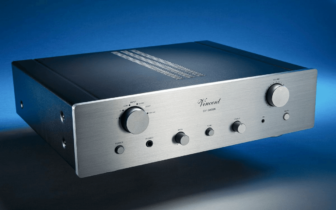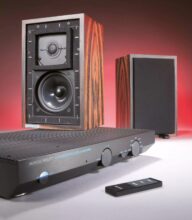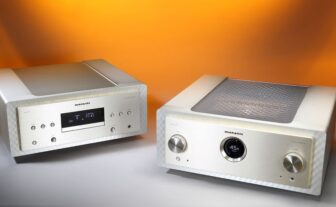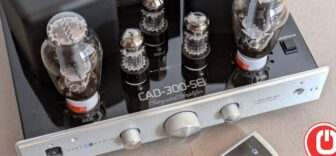Chord Ultima Integrated review
With the Ultima Integrated, Chord Electronics aims to raise the bar for integrated amplifiers. We are eager to see how this beautiful British machine intends to accomplish that.
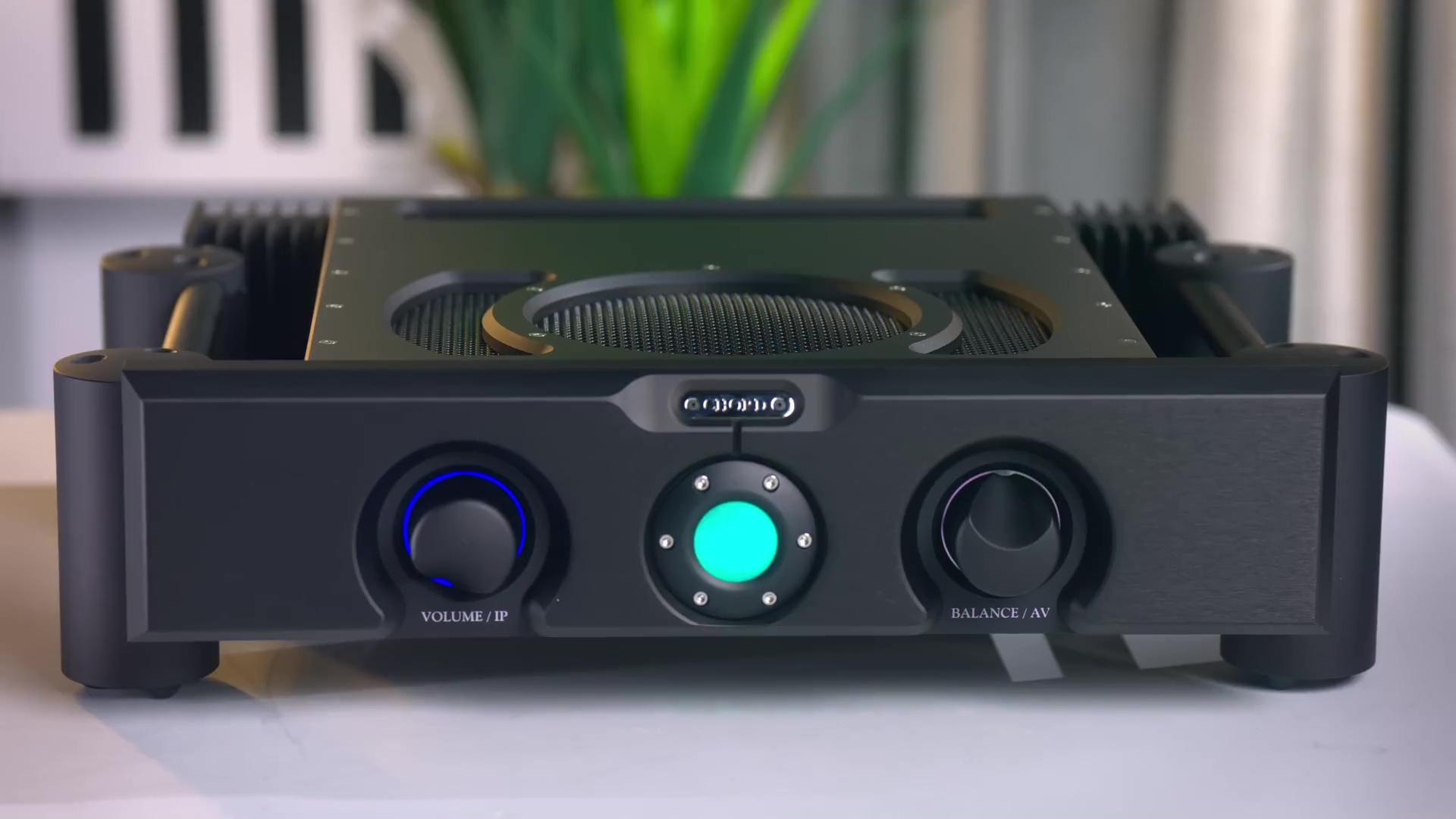
The new integrated amplifier from East Farleigh, UK, weighs almost 15 kilograms – and it impresses at first glance! It rests on four sturdy pillars like a modern fortress, and the front panel is made of 28-millimeter-thick aluminum. Everything conveys an impression of high quality.
The price tag reads $12,200 – and in a way, it shows. The material quality and craftsmanship are beyond reproach. Sure, some might find the “wobbling” axes of the rotary controls, which are functionally required, a bit bothersome, but we found the control concept – with rotary and pressable controls (with a bit of effort) – quite successful. The volume (rotate) and source selection (press) are done on the left, with the chosen main source (XLR high-level) illuminating the switch in red, for example.
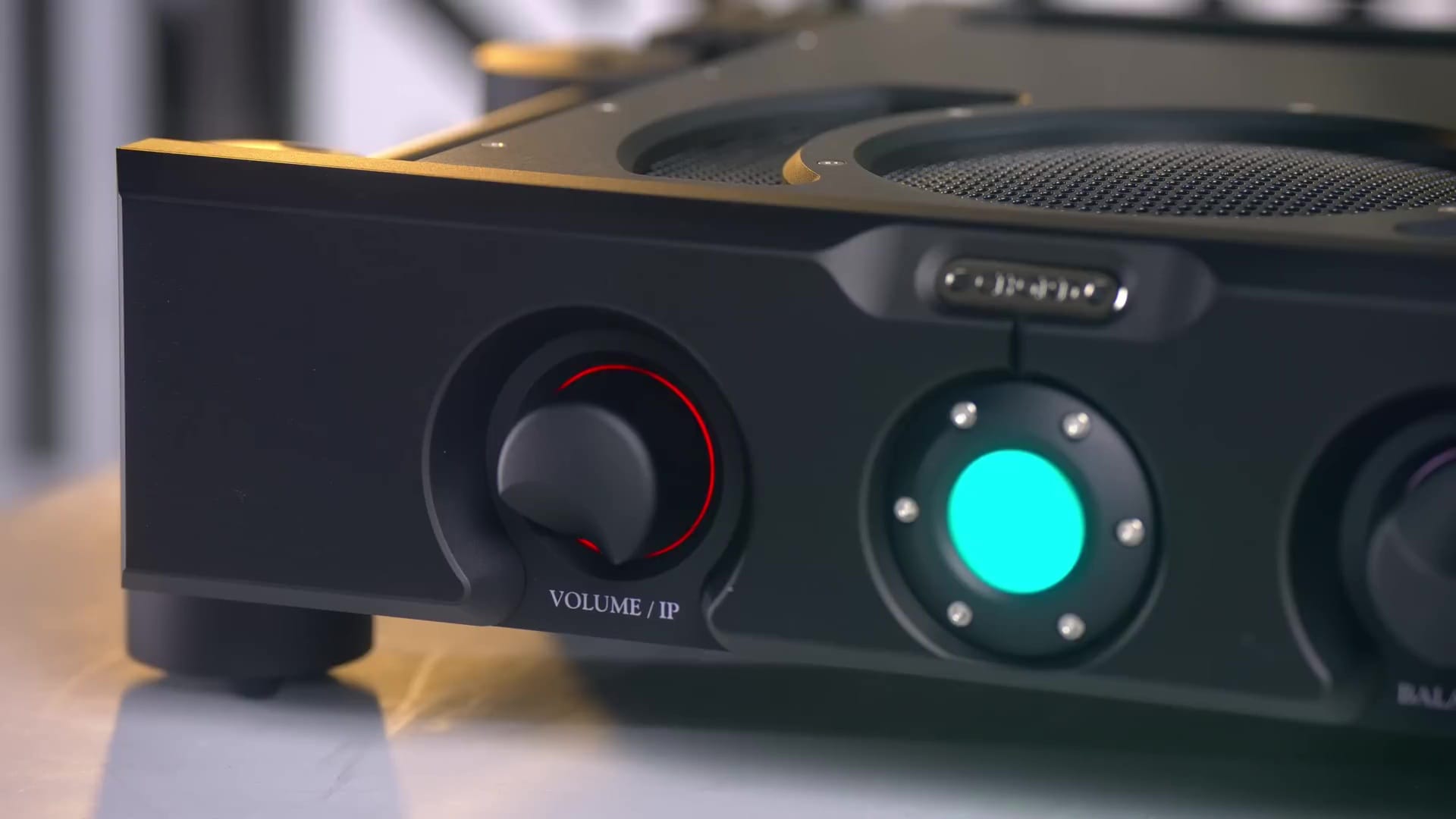
On the right, you adjust the balance and AV input. You might need to get used to the colorful LEDs visible right under the device cover. It’s worth mentioning that LEDs can enhance circuit stability and reduce high-frequency interference, a claim not exclusive to Chord Electronics. The specified power is 125 watts at 8 ohms or over 200 watts at 4 ohms. In our tests, we even measured short bursts of 360 watts. These are more than ample reserves for most users and rooms, making the Chord the potent centerpiece of a high-end audio system.
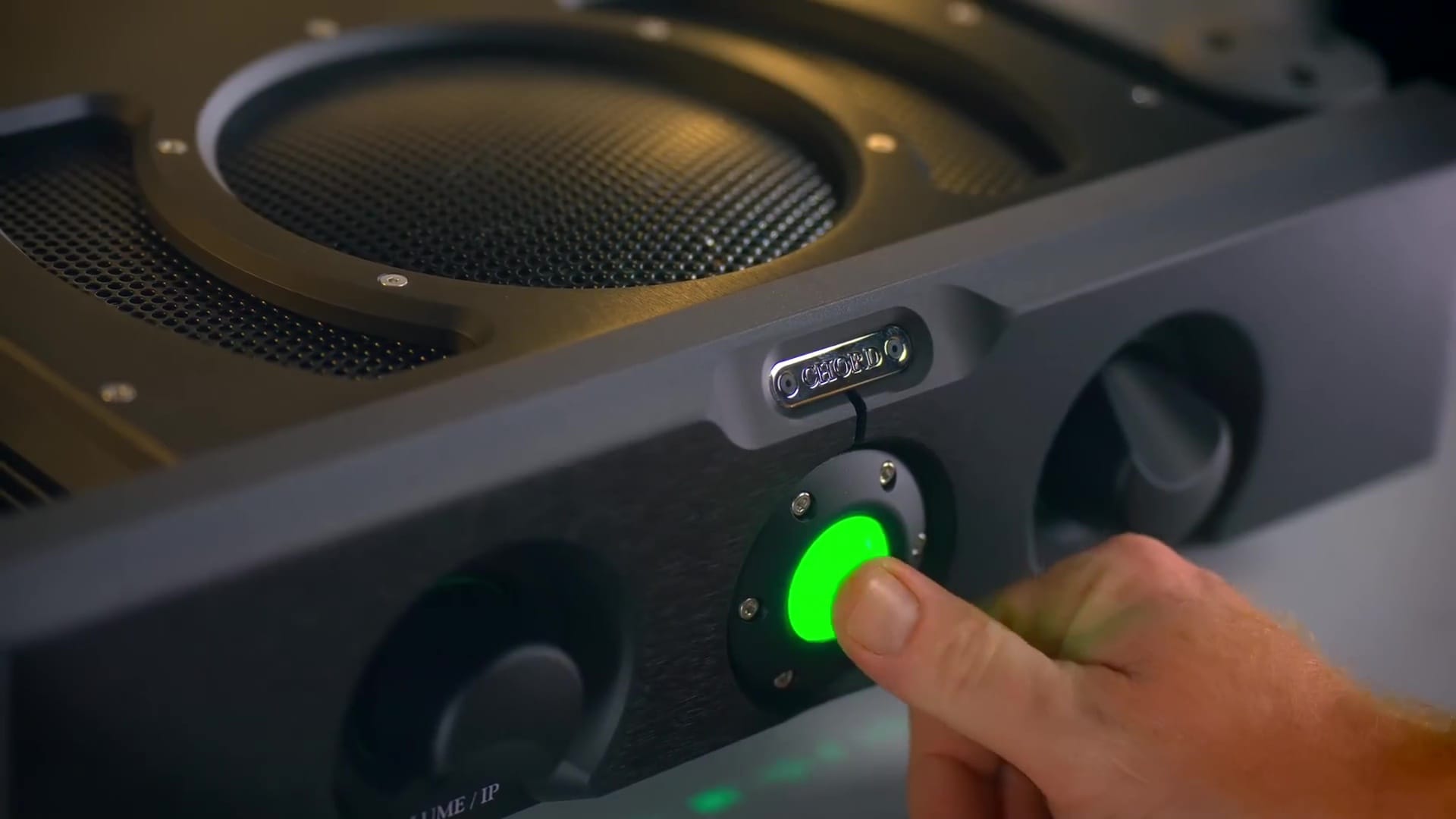
The circuitry operates primarily in Class A, thanks to a variable and smooth bias (idle current) control. Naturally, this requires smart control. A dual feedforward circuit, a type of positive rather than negative feedback, largely eliminates distortions, including the crossover distortions of transistors in the push-pull technology. It’s clear that Chord is focused not on unnecessary record-setting in the lab but on pure sound quality.
Typical for Chord is the use of their advanced MOSFETs and – rather unorthodox for Class AB – their unique switching power supply technology. Founder and CEO John Franks highlights the benefits of this technology, which Chord has spent years researching and refining to tame its reputation for interference and make it the best possible solution for music signals.
Unique Design
The controls and design of the Chord feel almost like those of an avant-garde Predator cruiser. The Chord Ultima series provided the blueprint, bringing its legendary DNA into a suitably impressive integrated amplifier. The connectivity, on the other hand, initially appears quite minimalist. There are two XLR inputs: one dedicated to the favorite source for maximum sound quality and the other for direct input in home cinema setups.
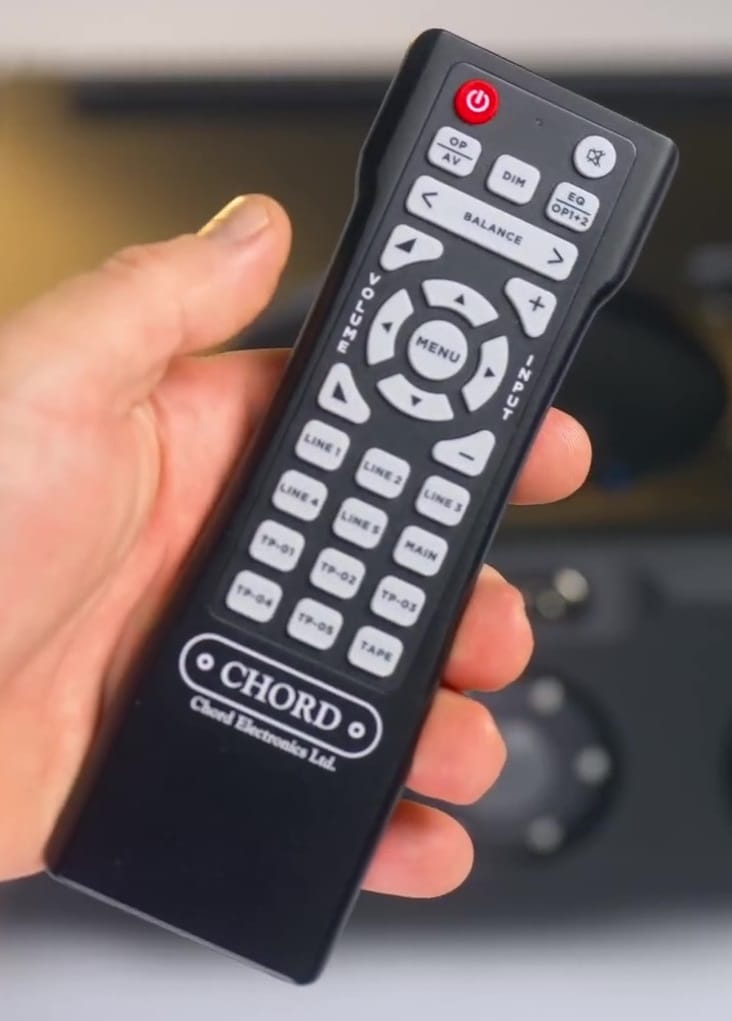
Positive Instead of “Just” Negative Feedback
In dynamic operation, feedforward circuits often outperform conventional feedback circuits, which is why the reviewer has appreciated this technology since the first patent by Harold Black – who also invented negative feedback – and still uses it in his personal equipment.
While “feedforward” still compares input and output signals, practically error-free correction amplifiers are used here to immediately eliminate deviations without having to send a phase-inverted correction signal through the entire amplifier again. This dual-feedforward error correction technology, further developed by Chord, is also used in some other devices. Caution is advised with the volume, as it leads directly to the power amp and can potentially provide full power. The balanced XLR preamp output allows for bi-amping or connecting active speakers/subwoofers.
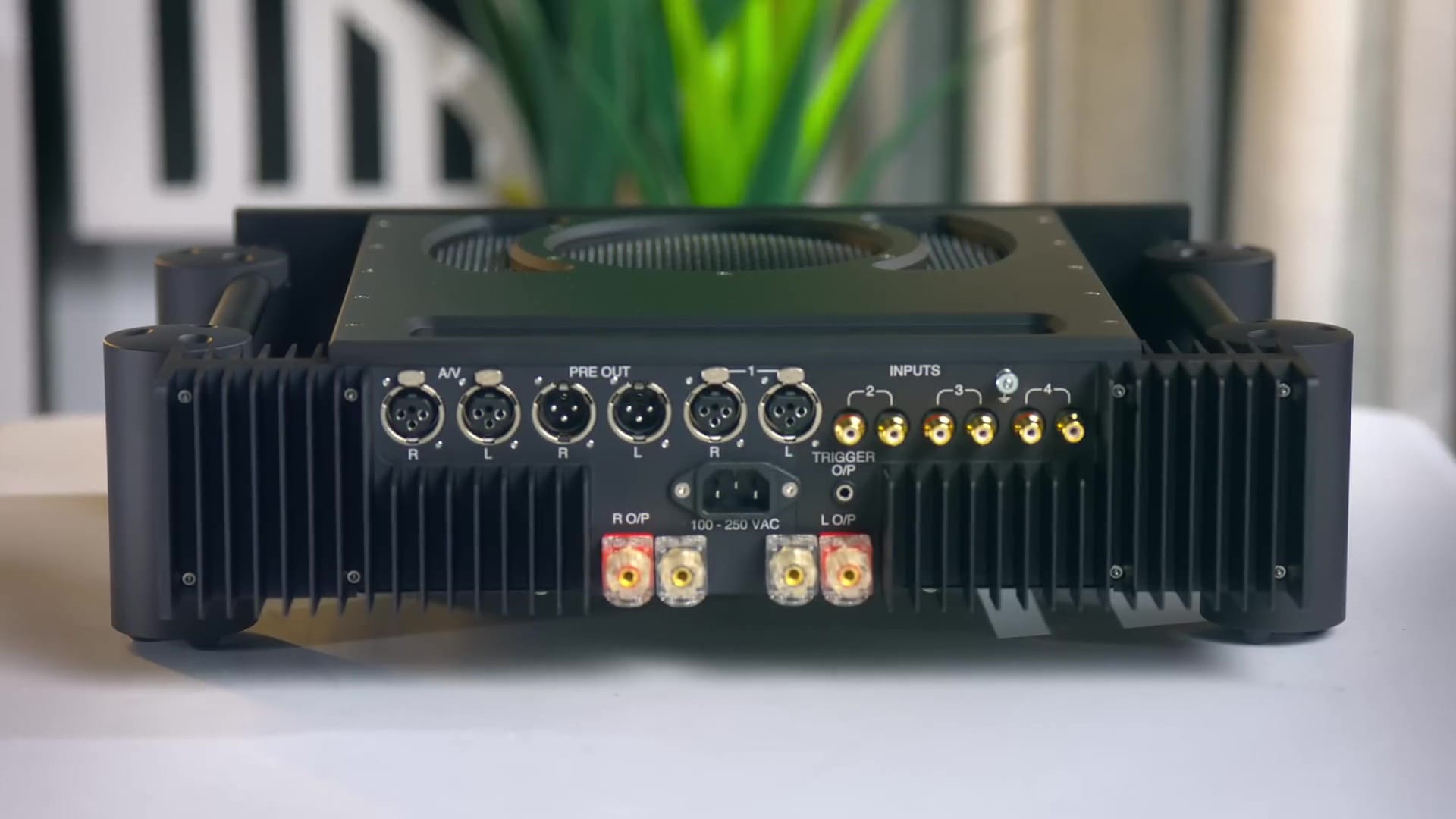
Three additional high-level inputs are provided via RCA (cinch). There are terminals for a pair of speakers but no headphone output. The sensitive topic of phono inputs is left to external solutions, which are usually more flexible and superior – and, of course, Chord offers these in its portfolio. No digital inputs or Bluetooth are offered in the Ultima Integrated. This could be seen as unfortunate, but it is certainly a consistent choice.
An input impedance of 100 kilohms may seem high at first glance, but it poses no disadvantage. In fact, the output impedance of the source and the cable length play less of a role than at 47–50 kilohms or lower. Overall, the system becomes less sensitive to interference. Chord Electronics offers a five-year warranty on its latest product, which reveals a higher-than-average confidence in its creations.
WHO IS CHORD?
Company founder John Franks has roots in aviation
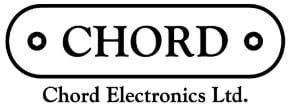
Chord Electronics was founded in 1989 by John Franks, who still leads the company today. He originally came from the aerospace industry, and his approach to audio and music is uncompromising. The solutions are notable for their depth, ingenuity, and absolute commitment to achieving the best sound quality, even if it requires unconventional methods. Chord’s first products were professional amplifiers for the BBC, followed by renowned studios such as Abbey Road. Soon, Chord expanded into the high-end consumer market. Amplifiers remain a core focus, featuring revolutionary, unique designs and circuits, but the company’s offerings have since expanded.
Today, Chord’s portfolio includes various sources like DACs and streamers, often characterized by striking, unusual designs.
Mystery in the Lab
The Chord Ultima initially puzzled us during noise measurements. Strangely, we recorded values around 55 dB, about 30 dB worse than expected. This was the case with two different test units. However, such noise levels would have been immediately noticeable in the listening room. But both Chords performed flawlessly, with no noise audible even at full volume with no music signal, when the ear was directly against the tweeter. Given the disconnect between poor measurements and flawless real-world performance, something was fundamentally wrong, and it wasn’t fair to blame the British amplifier.
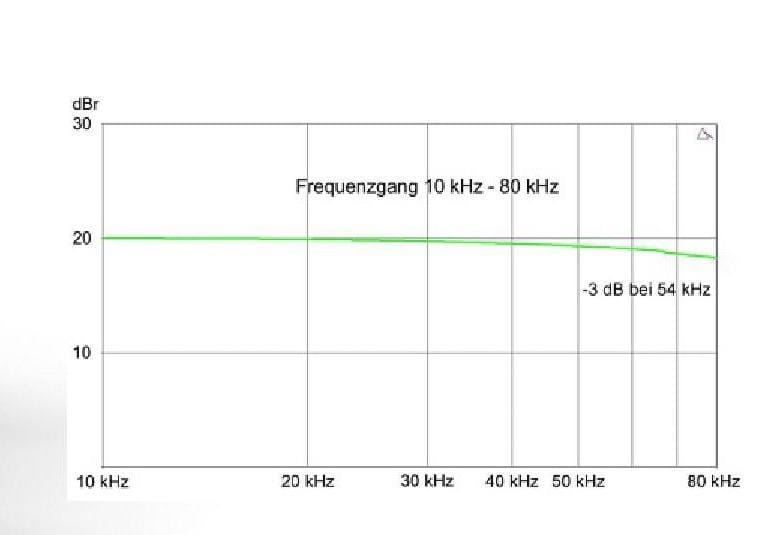
It seems the measurement errors were due to a rare incompatibility between the amplifier and the testing system, which we couldn’t fully resolve during the review period despite extensive efforts. This was something we had never encountered before. We retested with another measurement system and obtained values close to the manufacturer’s stated 90 dB, but we chose not to evaluate this for fairness reasons.
Fantastic Sound
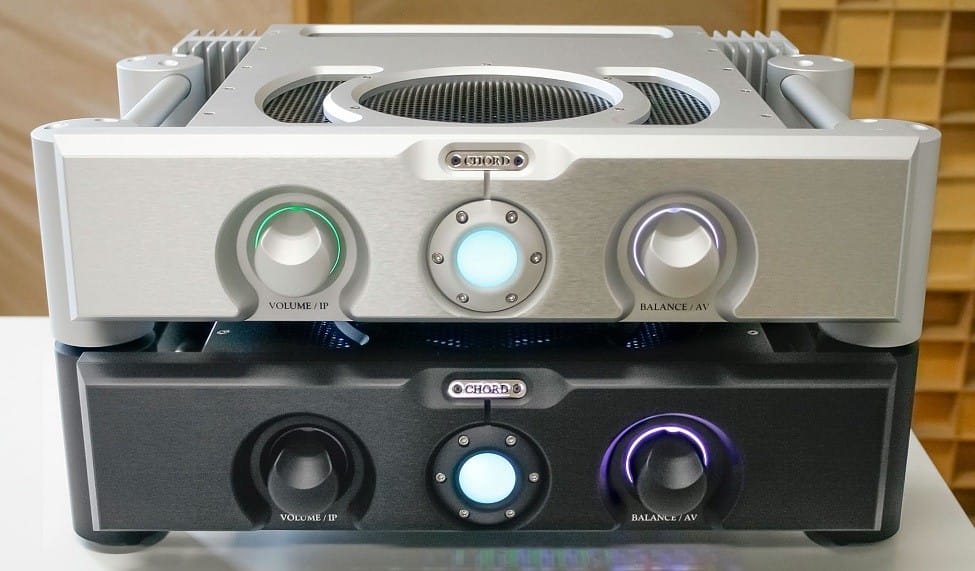
In our listening tests, the Chord Ultima Integrated left nothing to be desired. It swings, pulses, and rocks. It proved to be a sonic “rock,” offering refined detail, expressiveness, and authoritative power. The source was the MP 3100 HV from T+A, which plays CDs and streams high-quality HD tracks.
And? Bonnie Raitt’s “I Can’t Make You Love Me” was full of passion. This amplifier will satisfy even the most demanding listeners. It exerted perfect control over the speakers – whether it was the large B&W 800 D3 or T+A’s new Criterion S240. During “Tricycle” by Flim & the BB’s, the sound was exemplary: powerful, tight, and well-defined, yet colorful and effortless, with a wide and excellently layered soundstage. Even at extremely high volumes, there was no hint of strain. Incredible – and beautiful!
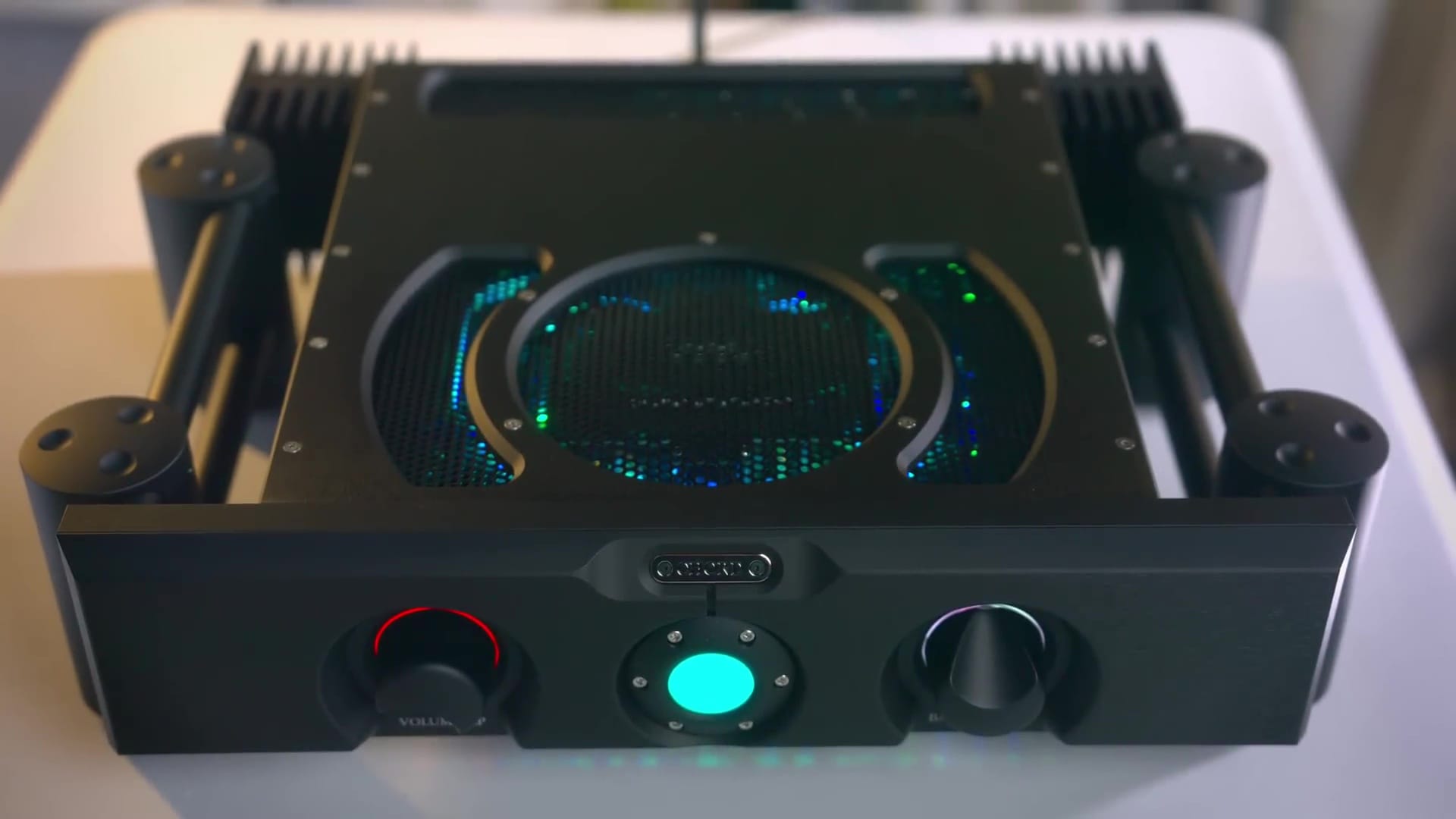
Test Equipment
- CD Player: T+A MP 3100 HV
- Streamer: Audiolab 6000N Play
- Integrated Amplifier: Symphonic Line RG14 Edition
- Speakers: B&W 800D3, T+A Criterion S 240
- Cables: HMS, Supra Cables
Gallery
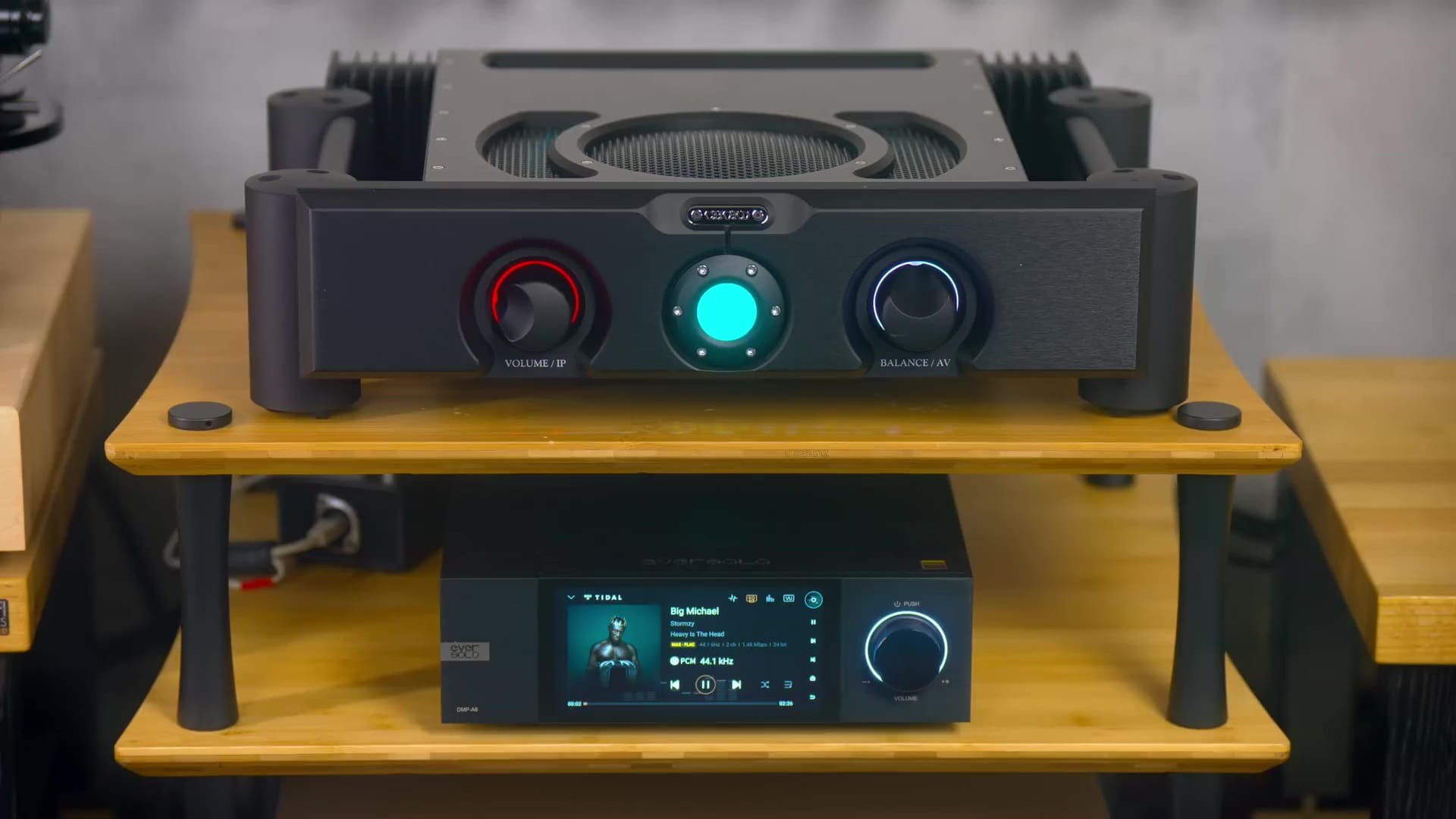
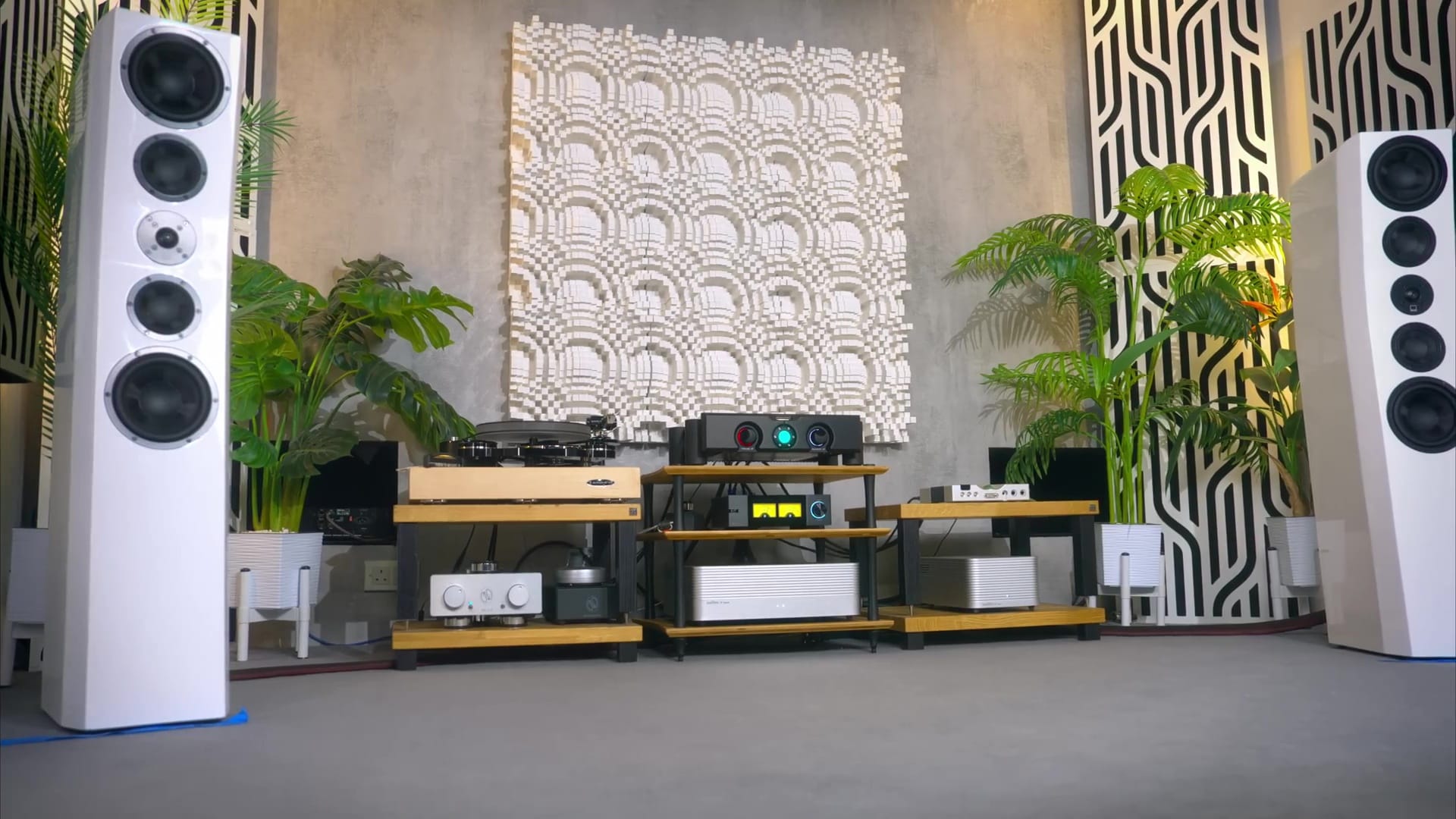
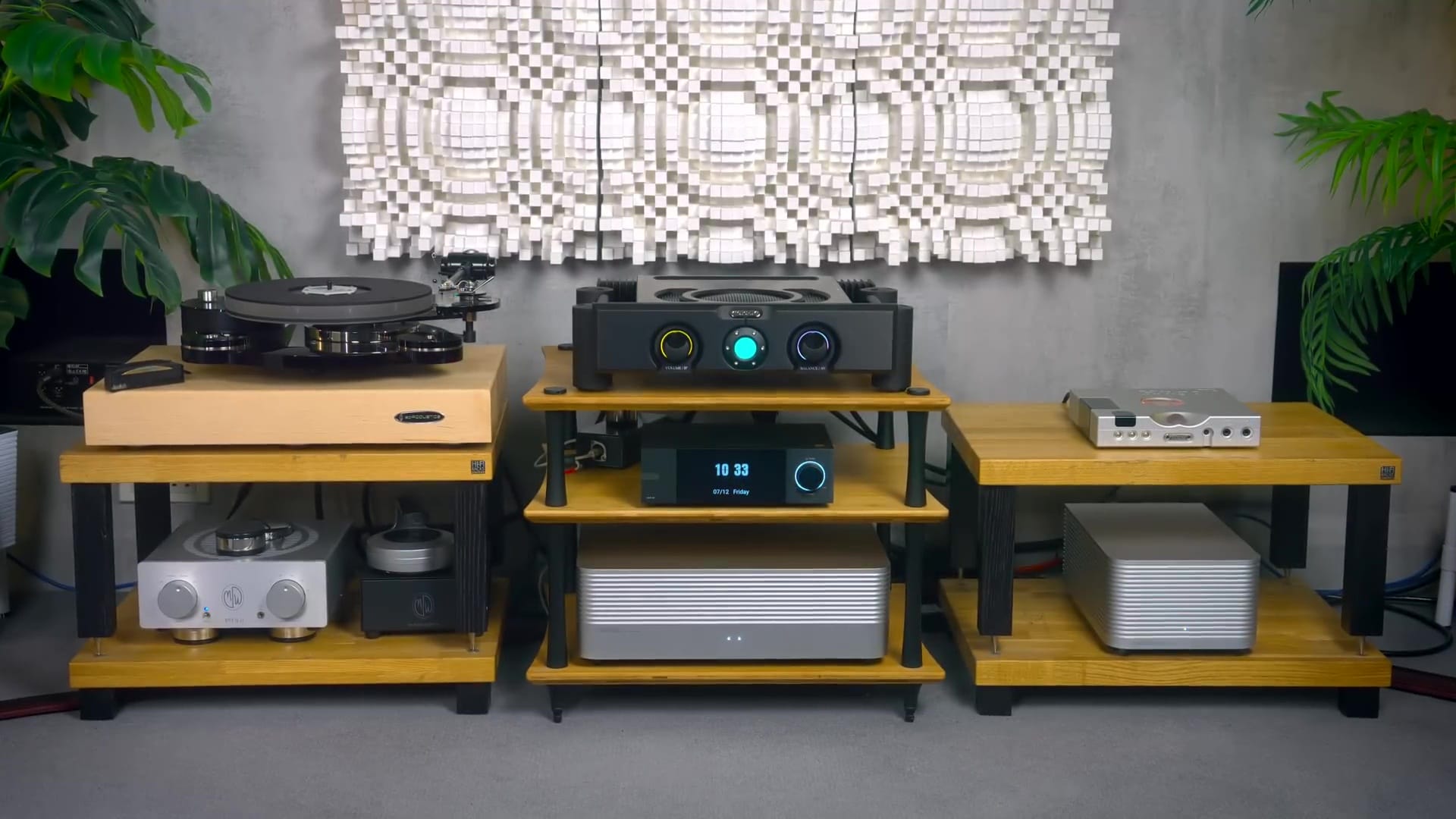
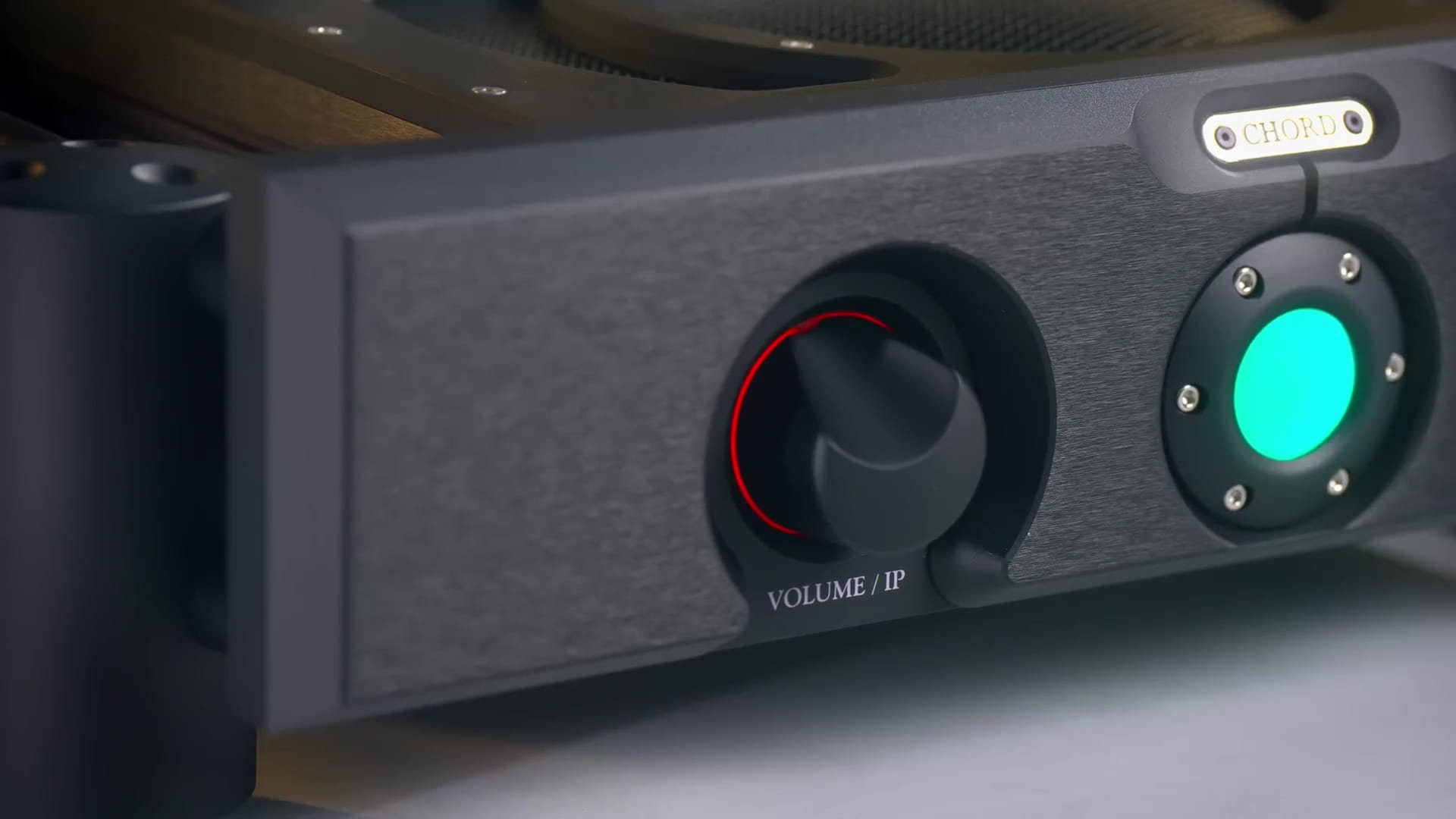
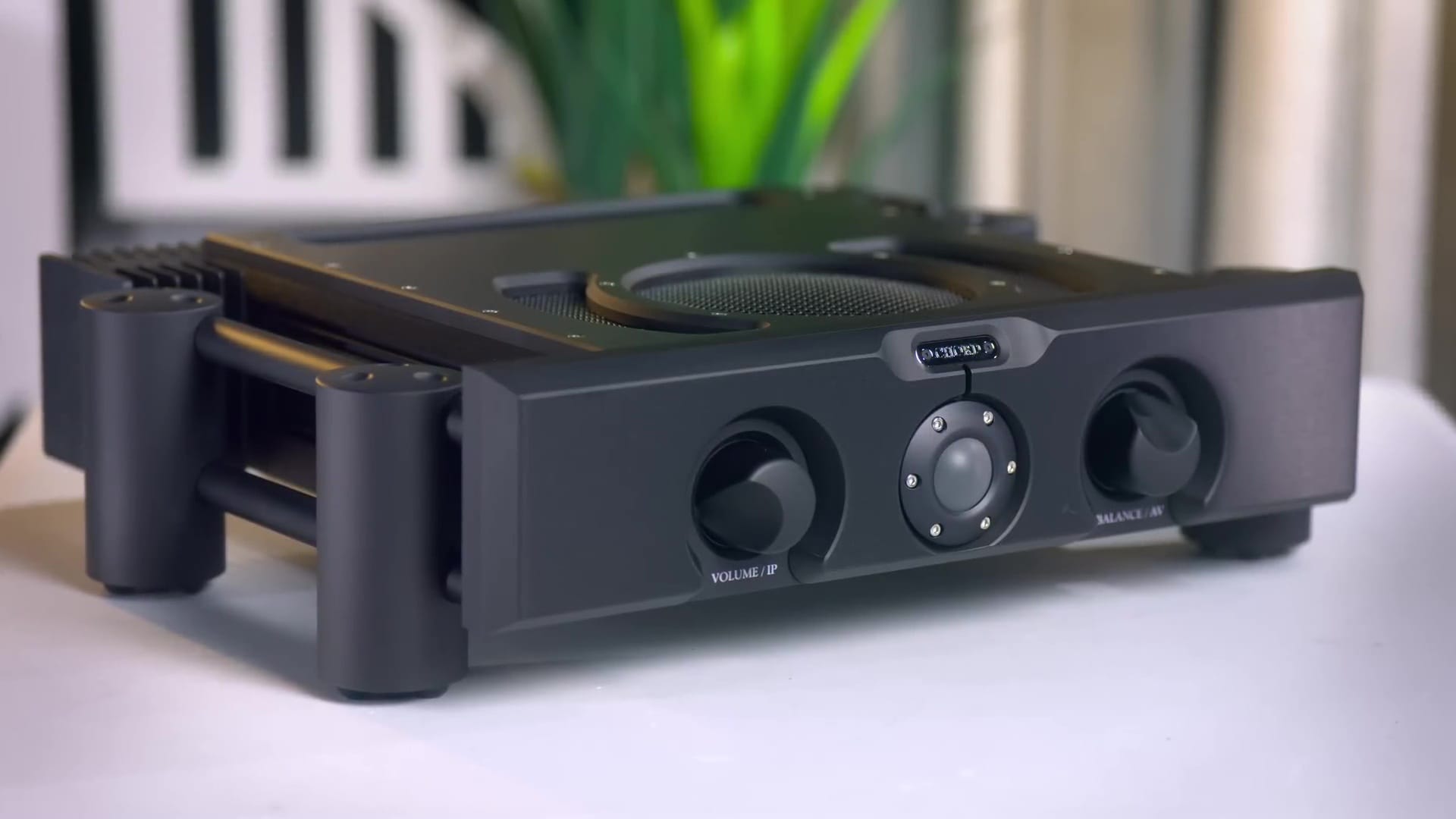
Specs
| Product Type / Price Range | Integrated Amplifier Transistor / >$13,000 |
|---|---|
| Website | www.chordelectronics.co.uk |
| Price | $12,200 |
| Dimensions (W x H x D) in cm / Weight in kg | 48.5 x 13.5 x 38.5 / 14.5 kg |
Verdict
Sound Quality
- Sound Quality Rating: 55% (good, 8.2/10)
- Description: Powerful, transparent, vibrant, lively, with a deep and wide soundstage
Measurements (10% of overall score)
- Continuous Power per Channel at 4 Ohms at 1% THD (in watts): Very good (248 watts)
- Impulse Power at 4 Ohms (1 kHz, in watts): Very good (358 watts)
- Intermodulation at 5 watts (in %): Good (0.07)
- Damping Factor at 4 Ohms: Very good (94)
- Channel Separation (in dB): Adequate (47)
- Channel Balance Control (in dB): Adequate (1.8)
- Upper Frequency Limit (in kHz): Satisfactory (64)
- Total Harmonic Distortion at 5 watts (in %): Good (0.07)
- Noise Level at 5 watts (in dB): Not measured
- FFT Spectrum: Not measured
- Measurements Rating: Good (7.7/10)
Features (15% of overall score)
- Build Quality / Finish: Good (0.07)
- Number of Analog Inputs (Cinch / XLR): Very good (5)
- Special Connections / Pre-Out: Only AV / Yes
- Tone Control or Room Calibration: No
- Color Variants: Black, Silver / 2
- Features Rating: Satisfactory (5.6/10)
Handling & Operation (15% of overall score)
- Remote Control Quality / Instructions: Good (remote in English, instructions in progress)
- Device Operation / Display & Interface: Good
- Handling & Operation Rating: Good (8.0/10)
Service & Environmental (5% of overall score)
- Warranty (in years): Good (5 years)
- Packaging: Good (cardboard / Styrofoam)
- Power Consumption in Standby / Idle (in watts): Very good (1 / 45 watts)
- Hard Power Switch: Yes
- Service & Environmental Rating: Satisfactory (5.2/10)
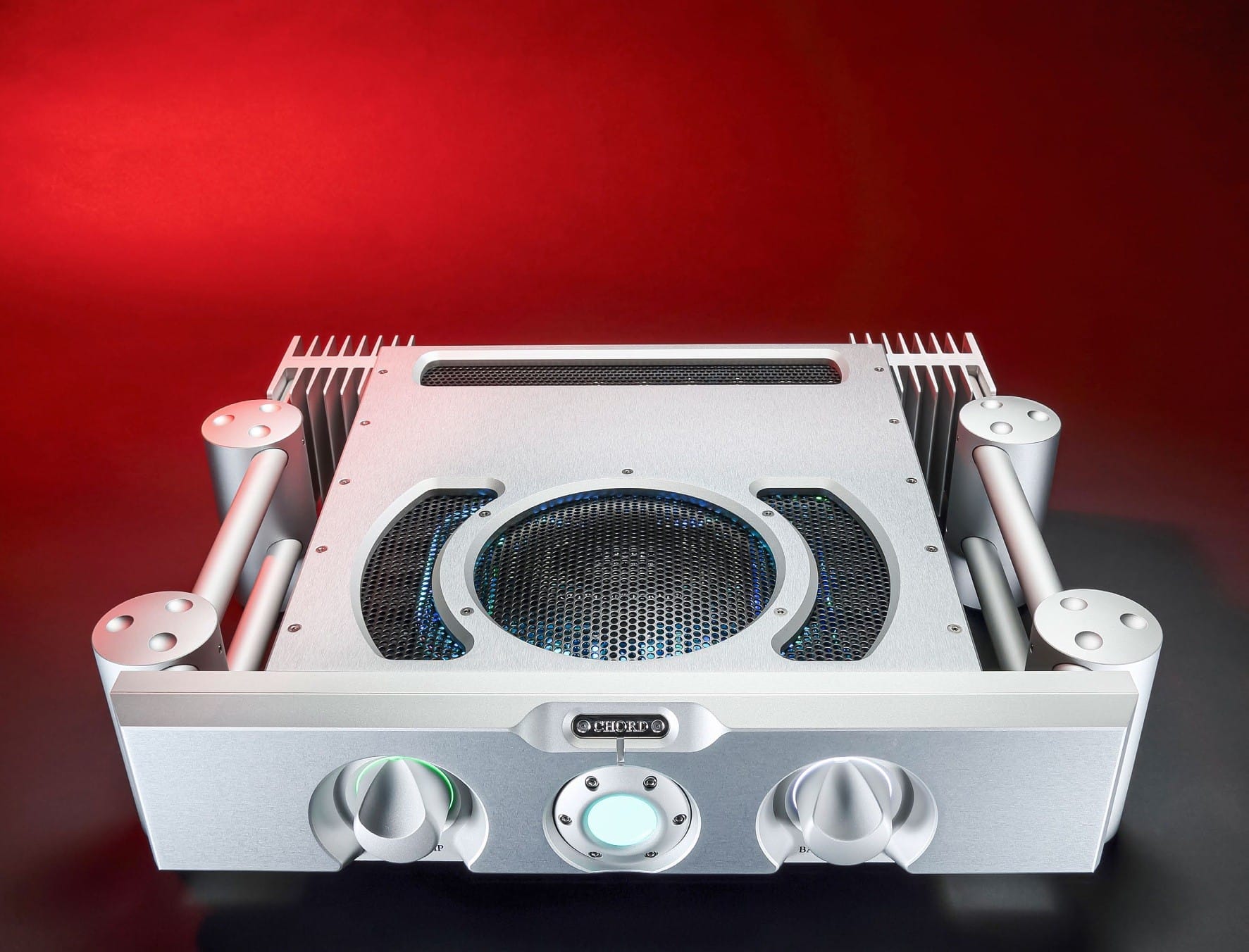
Final Rating: Good 8.0/10
End Game Amplifier | Chord Ultima Integrated Amplifier Review | Emotive Realism!
Recording studios around the world and elite musicians use Chord amplification. Watch the video to see who endorses the brand, ...



